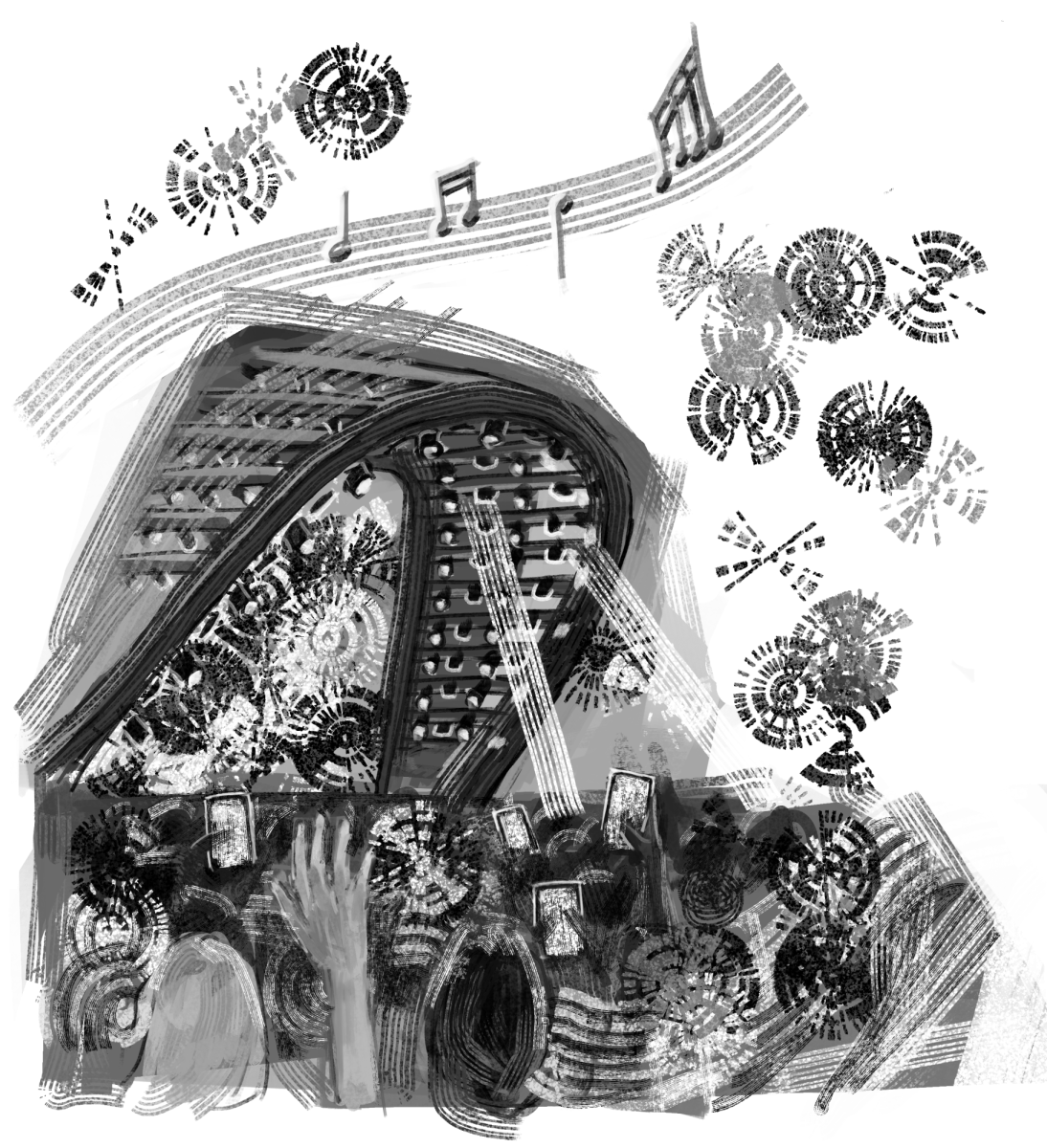Indie popstar Beabadoobee’s third LP, This Is How Tomorrow Moves, has arrived just before the end of summer. Her sophomore effort, Beatopia, demonstrated the singer’s talent as she paired her stunning, delicate voice with nostalgic indie-pop production. Beatopia displayed that Beabadoobee was capable of becoming a star and she has definitely done so, collaborating with jazz sensation Laufey and even touring with global superstar Taylor Swift.
Beabadoobee’s 3rd album was highly anticipated with a strong singles run before its release. The album showcases a thematic shift in lyrics from her previous effort, moving on from the youthful angst in Beatopia to the struggles of adulthood. The opening track and first single, “Take A Bite”, is a clear standout and displays Beabadoobee refining her previous 90’s alt-pop sound paired together with lyrics reflecting on her self-destructive tendencies. This theme of self-reflection is ever-present throughout the album, whether she’s struggling with physical insecurities on “Girl Song”, a touching and beautiful piano ballad, or making new revelations about taking risks on album highlight, “Beaches”. “Beaches” is Beabadoobee’s personal favorite, and with its crunchy guitars and introspective lyrics, this does not come as a surprise. Jazzier cuts are also present throughout the album, with the waltz-y “Coming Home”, which highlights the comfort of loved ones, and “Real Man”, where Beabadoobee fires shots at an incompetent ex. Bossa Nova shows up on the groovy “A Cruel Affair”, and even country influences make an appearance with the gorgeous love song “Everseen”.
Perhaps disappointingly for some fans, This Is How Tomorrow Moves does not present much material similar to Beabadoobee’s previous alt-rock hits like “Care” on her debut album, Fake It Flowers. While This Is How Tomorrow Moves proves to be much more mature lyrically and sonically compared to its predecessor, it is overall less interesting. Her debut, Fake It Flowers, was rather inconsistent, but still very enjoyable with its fuzzy grunge. Beatopia offered dreamier sounds and a bedroom pop aesthetic with its enjoyable indie pop tunes and alt-rock bangers. Yet This Is How Tomorrow Moves, except for the percussive “Post”, lacks most of the dream pop and alt-rock that used to define Beabadoobee. Now, with a helping hand from producer Rick Rubin, she presents tighter, but also less inventive, pop-rock. This Is Tomorrow Moves showcases Beabadoobee’s evolution from previous works and a step in a new direction which many who enjoyed her debut, Fake It Flowers, and its alt-rock, may not be so keen on. The record is undoubtedly strong, but perhaps not as much as its predecessors.
If you would like to voice your opinion on an issue you feel is relevant to our community, please do so here. Anyone is able and welcome to submit a Letter to the Editor, regardless of journalistic experience or writing skills. Submissions may be published either online or in a print issue.














